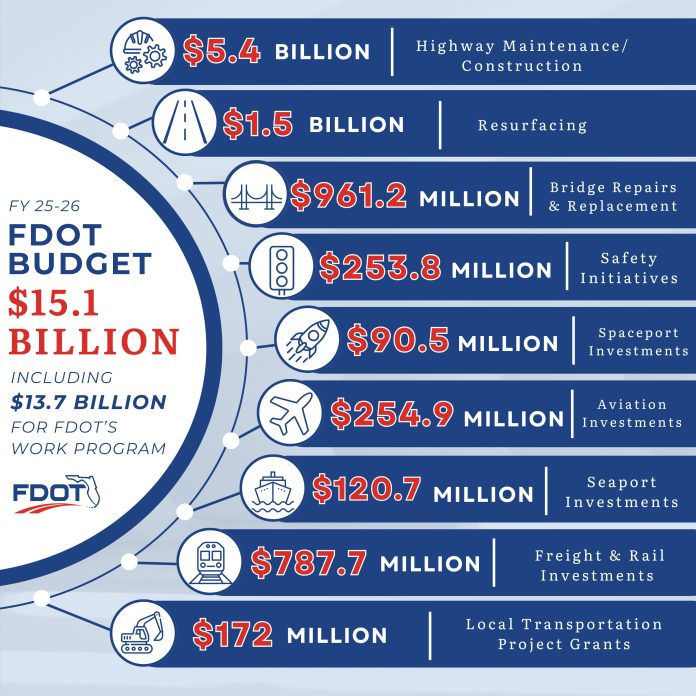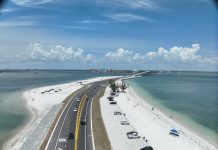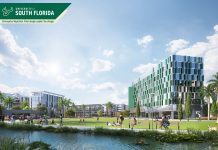Florida Construction News staff writer
Florida’s newly signed $15.1 billion transportation budget for fiscal year 2025-26 includes significant investments in roads, bridges, rail, seaports, and spaceports, as well as new programs to support the future of transportation and workforce development across the state.
The funding package includes $13.7 billion for the Florida Department of Transportation’s (FDOT) State Transportation Work Program. The program will support a wide range of infrastructure projects, including:
- $5.4 billion for highway maintenance and construction, adding 102 new lane miles
- $1.5 billion for resurfacing work on 2,652 lane miles
- $787.7 million for freight, rail and community transportation systems
- $961.2 million for bridge work, including repairs to 40 bridges and replacements for 21
- $254.9 million for aviation investments
- $90.5 million for spaceport development
- $275.1 million for trail systems, including $50.1 million for the SUN Trail Network
- $253.8 million for safety initiatives
- $172 million for local transportation project grants
- $120.7 million for seaport improvements
“Florida is well known for our world-class infrastructure, and the Focus on Fiscal Responsibility Budget allows FDOT to continue strategic and innovative investments to maintain that reputation,” FDOT Secretary Jared W. Perdue said. “Governor DeSantis remains a steadfast champion of investments that bring value to our communities and enhance the quality of life for Floridians.”
In addition, Senate Bill 1662 is a sweeping transportation bill that implements policy changes aimed at preparing Florida for rapid growth and emerging technologies.
Key provisions in the legislation:
- Establishing the Florida Transportation Research Institute, led by the University of Central Florida, to support transportation and aerospace research
- Creating a Transportation Academy to train future workers, offering on-the-job experience and certifications such as commercial driver’s licenses
- Creating new funding pathways for spaceport and manufacturing infrastructure, including support for commercial space launch operations
- Protecting space-designated land at seaports from being repurposed for non-space uses, particularly around Cape Canaveral, which handles 60% of global space launches
- Developing a state plan for Advanced Air Mobility (AAM) to position Florida as a leader in next-generation aviation
- Authorizing construction of vertiports, beginning with a facility at SunTrax to support AAM testing and deployment







